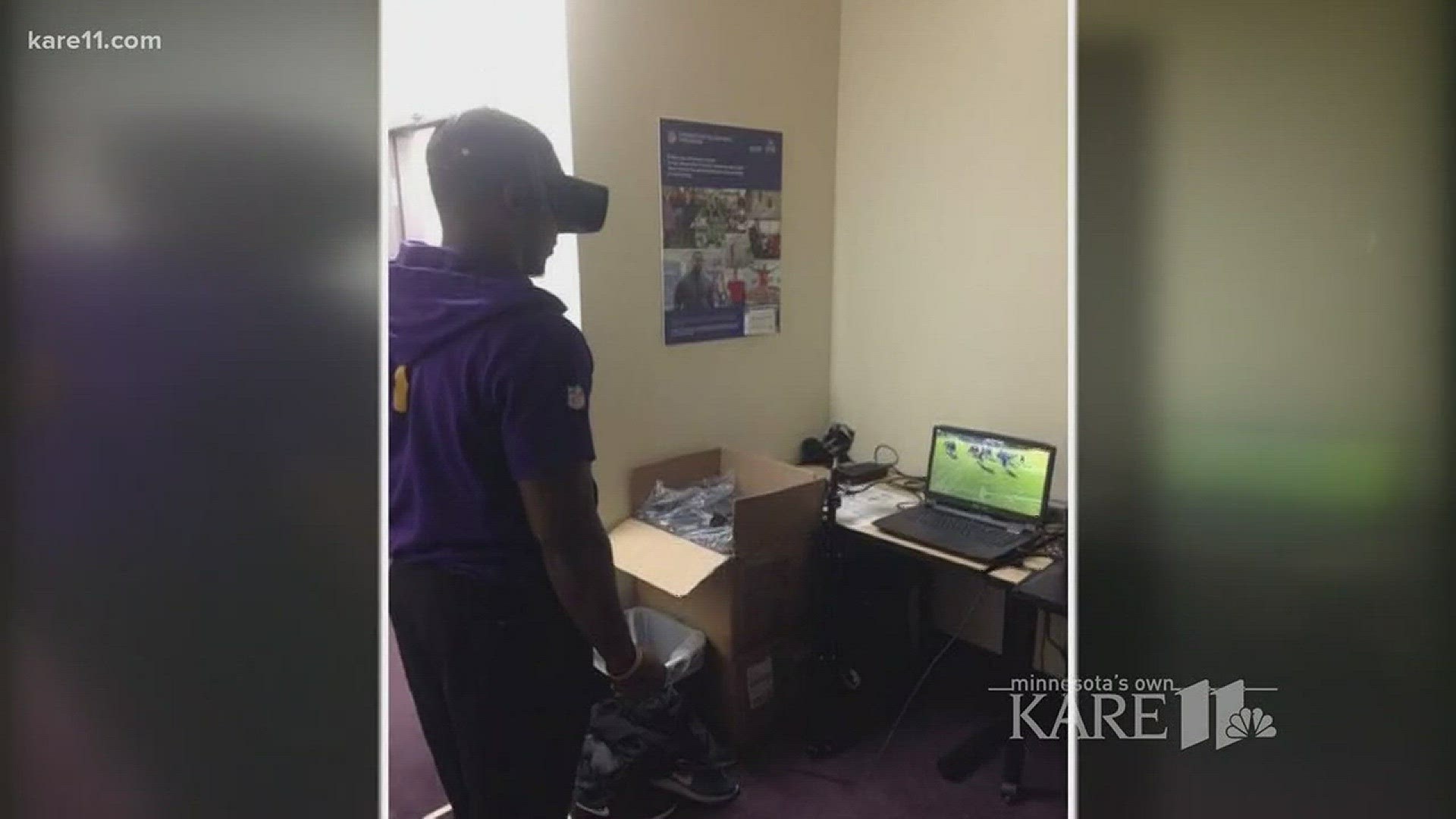MINNEAPOLIS - Teddy Bridgewater's long-awaited return to the field for the Vikings is nearing reality, but long before the quarterback returned to practice he says he turned to virtual reality.
"I would definitely steal reps with the virtual reality that we do around here," Bridgewater said on Thursday.
The Vikings were among the first teams to utilize the STRIVR virtual reality system in 2015. The California company uses 360 degree cameras to capture actual practices from different perspectives. The technology allows quarterbacks to read defenses and scan the field virtually, and Bridgewater was an early adopter.
"He was one of our original users in the NFL," said Derek Belch, CEO of STRIVR.
After Bridgewater's knee injury last year, the quarterback says he turned to the technology even more.
"I would go in and watch, Wednesday's practice, Thursday's practice and Friday's practice," Bridgewater said.
And at the Vikings facility that includes doing more than just putting on a headset.
"They actually have a room at the facility," Belch said. "There's enough space for a player to move around a little bit and feel as if he's on the field. Is he throwing the ball? Is he sweating? No. But he's doing things at 10-20 percent speed, going through the mental mechanics along with the physical mechanics, that make his brain feel like he's there."
And it's part of the reason why Bridgewater says he feels ready to get back out there.
"I have a ton of confidence," he said. "Throughout this entire process we did drills and simulated different movements that were preparing me for game like situations."
Now, as he begins to put that training to use on the practice field, Belch said STRIVR will be paying close attention, because this is the biggest test yet of the new technology.
"Obviously in Teddy's case we're talking literally over a year of not being on the field," Belch said. "So I'm pretty excited to see what the cumulative effect of that mental work has been during his rehab process."

